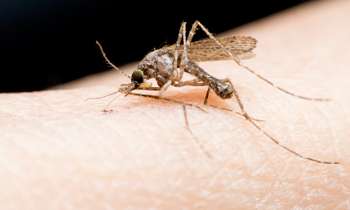Viruses transmitted by mosquitoes include dengue fever, the West Nile virus and, of recent heightened interest, the Zika virus. Credit: thinkstockphotos.com/Rice University
Neglected tropical diseases have become widespread in the United States, particularly in Texas, which has an opportunity to devote state resources toward developing vaccines for these afflictions, according to a tropical-disease policy expert at Rice University's Baker Institute for Public Policy.
Jennifer Herricks, a postdoctoral fellow in disease and poverty at both the Baker Institute and Baylor College of Medicine's National School of Tropical Medicine, will testify on the topic before a Texas House of Representatives' Public Health Committee hearing at 9 a.m. Wednesday, Feb. 10.
It is estimated that 12 million Americans, most of them impoverished, live with a neglected tropical disease (NTD), Herricks said. These diseases are not household names—Chagas disease, cysticercosis, toxocariasis, toxoplasmosis and trichomoniasis—and also include viruses transmitted by mosquitoes, including dengue fever, the West Nile virus and, of recent heightened interest, the Zika virus.
During the 2015 Texas legislative session, Herricks testified in support of House Bill 2055, introduced by state Rep. Sarah Davis, R-West University Place, which became law this year and provided the first step for Texas to begin to properly address emerging and neglected diseases. The law mandates that the Department of State Health Services implement sentinel surveillance for these diseases. The new law also ensures that physicians have the knowledge necessary to diagnose and treat patients. As the first state in the U.S. to enact such legislation, Texas is setting the bar for addressing these important public health issues at the state level, Herricks said.
"When we think about disease control, having reliable incidence and prevalence data is certainly an important factor," she said. "Another thing we often consider is what is the most effective way to address human disease in terms of preserving human health in a cost-effective manner. In most cases, the most cost-effective intervention is vaccination. Because of vaccination, we were able to eradicate smallpox, previously one of the most common and devastating human diseases, in all areas of the world. However, most emerging and neglected diseases have no vaccines."
This represents a public-health opportunity, Herricks said. "Texas has some of the best research capabilities in the world, including exceptional expertise in emerging and neglected diseases," she said. However, these talented researchers need resources to develop the vaccines that will ultimately protect Texans and many others from these diseases. This is where our policymakers have the opportunity to find ways to ensure that these resources are made available."
Provided by Rice University





















